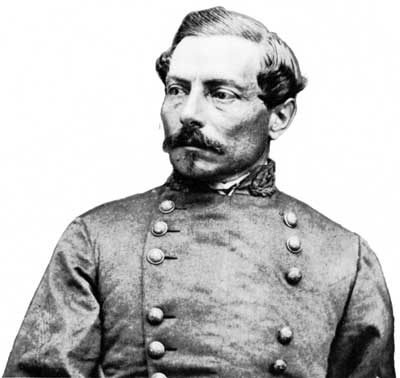|
FORT SUMTER National Monument |
 |

Brig. Gen. Pierre Gustave Toutant Beauregard.
Courtesy National Archives.
The Confederates
Demand Fort Sumter's Evacuation
After cabinet debate in Montgomery, the Confederate Secretary of War ordered General Beauregard to demand the evacuation of the fort, and if that demand were refused, to "reduce it." On the afternoon of April 11, three of Beauregard's aides visited the fort under a flag of truce and presented the ultimatum. Major Anderson refused compliance, but at the same time he said, "Gentlemen, if you do not batter the fort to pieces about us, we shall be starved out in a few days." Still reluctant to initiate conflict, the Montgomery government telegraphed:
"Do not desire needlessly to bombard Fort Sumter. If Major Anderson will state the time at which . . . he will evacuate, and agree that in the meantime he will not use his guns against us unless ours should be employed against Fort Sumter, you are authorized thus to avoid the effusion of blood. If this or its equivalent be refused, reduce the fort...."
The atmosphere in Charleston was tense. In at least one household, dinner was the "merriest, maddest ... yet. Men were more audaciously wise and witty. We had an unspoken foreboding it was to be our last pleasant meeting."
Shortly after midnight, four Confederate officers confronted Major Anderson again. About 3 hours later, in a carefully worded reply, the Union commander agreed to evacuate "by noon on the 15th" unless he should receive prior to that time "controlling instructions from my Government or additional supplies." But it was expected in Charleston that the Federal supply ships would arrive before the 15th. Major Anderson's reply was rejected by the Confederate officers, who proceeded at once to Fort Johnson to give the order to open fire.

|
|
Last Modified: Mon, Dec 2 2002 10:00:00 am PDT |


